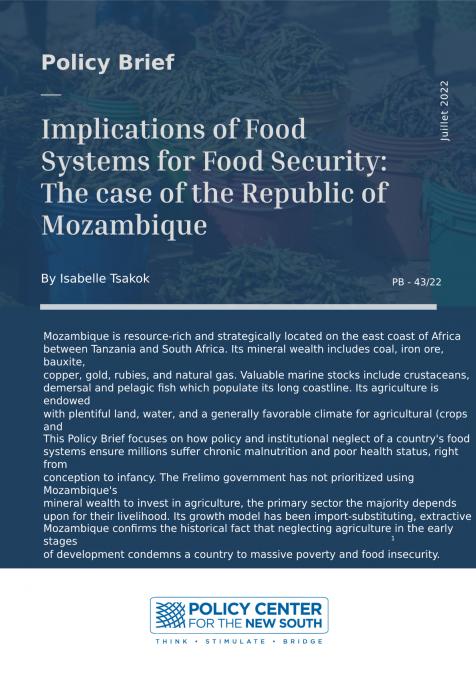Publications /
Policy Brief
Within the context of the United Nations Food Systems Summit taking place in September 2021, this brief discusses key drivers of food systems in Africa, as well as the challenges and opportunities for transformation. It concludes with specific policy options that could considerably accelerate progress towards the transformation of food systems across the continent. Specifically, this policy brief makes five recommendations: it recommends that investment in research and development for the transformation of food systems in Africa be significantly increased. To do so, it proposes the development of an African funding base to support supranational research activities as well as the creation of policy labs that allow for innovation and experimentation and learning from past failures. Secondly, the policy brief suggests that governments more proactively support the development and use of new technologies, including ICTs and biotechnology. Specifically, digital innovation hubs could provide the innovation ecosystem that is needed to spur the digital transformation of food systems, while research centers can play an active role in the evaluation and impact assessment of specific technologies and e-services in rural areas to ensure that digital applications and services meet quality standards. Thirdly, investment in strong vocational training and skill development at scale as well as integrating the concept of food systems into teaching and curricula will be crucial to harness Africa’s youth dividend and ensuring the next generation of African researchers has a deep understanding of the interconnectedness of the different disciplines that constitute food systems. The fourth recommendation made by this brief is to place more emphasis on post-harvest technologies, especially in food processing. Not only do these technologies reduce loss and waste, they add value to crops, make foods more convenient and nutritious, and expedite the commercialization of farmers’ production. Finally, the brief recommends that countries commit to strengthening the capacities within institutions and to mutual accountability mechanisms. The CAADP Biennial Review and the joint sector reviews hereby constitute best practice approaches that could be built upon to encompass all elements of a food systems transformation.











